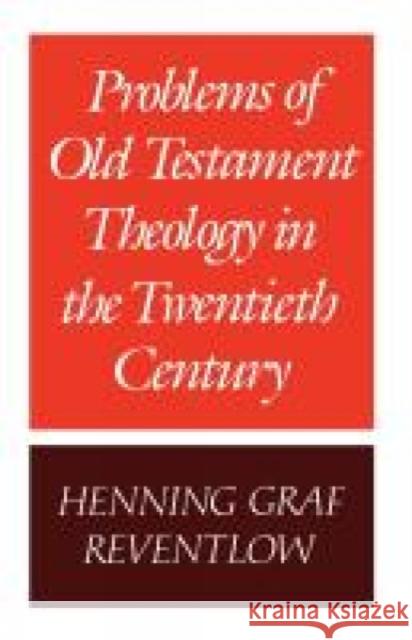Problems of Old Testament Theology in the Twentieth Century » książka
Problems of Old Testament Theology in the Twentieth Century
ISBN-13: 9780334022329 / Angielski / Miękka / 2012 / 208 str.
As its title indicates, this volume is an extended bibliographical essay concerning the major questions arising from attempts to present an Old Testament theology in the twentieth century. It begins with a brief look at earlier nineteenth-century attempts to write a distinctive Old Testament theology on the basis of an historical-critical approach to the Old Testament. It then proceeds to note the great change that emerged after the First World War and the revitalizing of interest in the subject, partly by way of a response to the ideological struggle over the Old Testament. Two major issues dominated scholarly approaches; the first concerned the conflicting, and ultimately unresolved attempt to find a basis for presenting a systematic approach to the religious ideas of the Old Testament. The second major issue, epitomized in the work of G. von Rad, has been the attempt to use history as the primary category and to set out a theology on the basis of a history of salvation. Professor Reventlow is not concerned to establish any final resolution of these major problems, though a number of criticisms of their strength and weaknesses are noted. Altogether this is a quite indispensable guide for anyone concerned with the question of Old Testament theology' (R. E. Clements, reviewing the original German edition in Society for Old Testament Studies Book List).
As its title indicates, this volume is an extended bibliographical essay concerning the major questions arising from attempts to present an Old Testament theology in the twentieth century. It begins with a brief look at earlier nineteenth-century attempts to write a distinctive Old Testament theology on the basis of an historical-critical approach to the Old Testament. It then proceeds to note the great change that emerged after the First World War and the revitalizing of interest in the subject, partly by way of a response to the ideological struggle over the OldTestament.Two major issues dominated scholarly approaches; the first concerned the conflicting, and ultimately unresolved attempt to find a basis for presenting a systematic approach to the religious ideas of the Old Testament. The second major issue, epitomized in the work of G. von Rad, has been the attempt to use history as the primary category and to set out a theology on the basis of a history of salvation. Professor Reventlow is not concerned to establish any final resolution of these major problems, though a number of criticisms of their strength and weaknesses are noted.Altogether this is a quite indispensable guide for anyone concerned with the question of Old Testament theology (R. E. Clements, reviewing the original German edition in Society forOld Testament Studies Book List).











